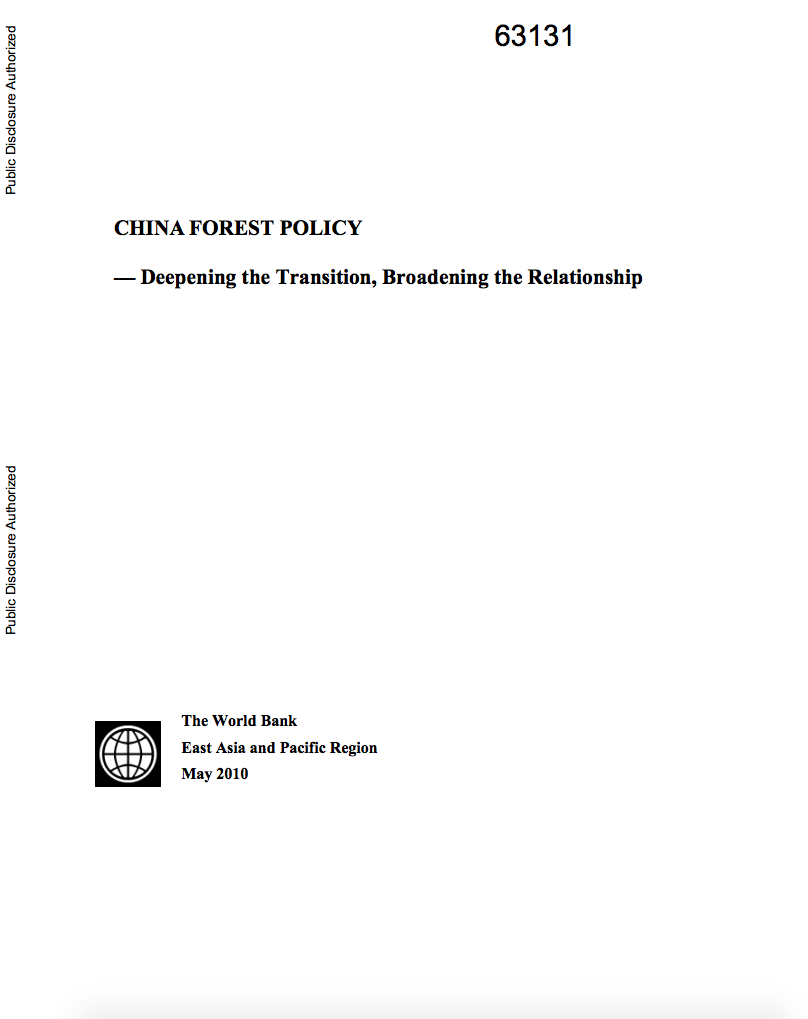China Forest Policy : Deepening the Transition, Broadening the Relationship
A pattern of forest area loss followed
by a period of reforestation is representative of the forest
transition process. Forest transition has been observed in
many countries and is a feature of the development process.
China reached its inflection point earlier and faster than
most other countries that have gone through the transition.
The report describes the success of reforms to forest
resource tenure in collective forest areas. These reforms,


